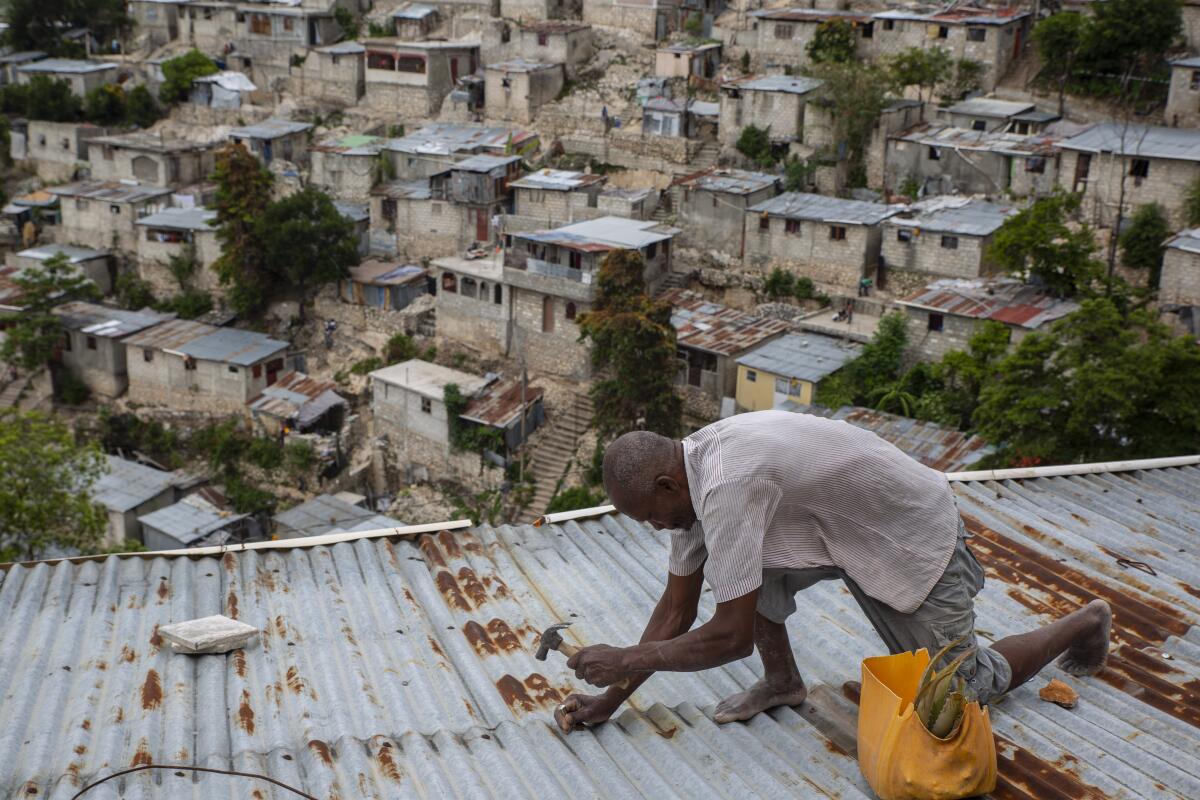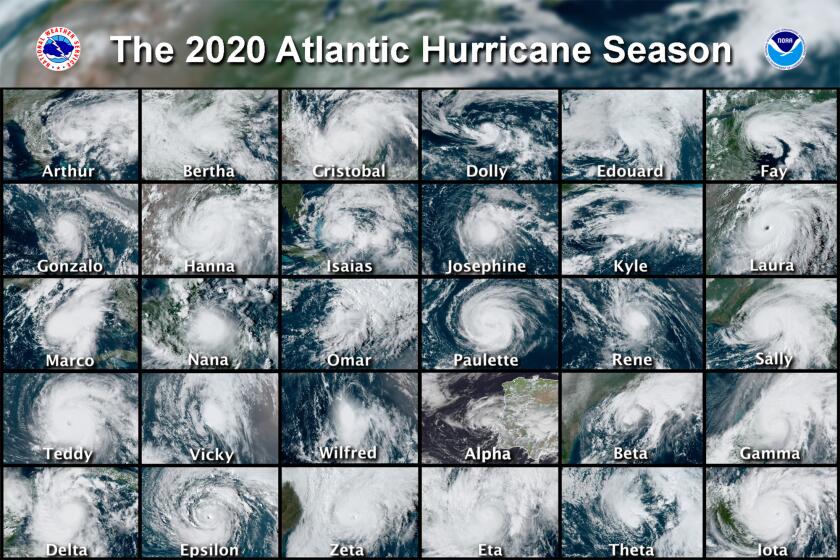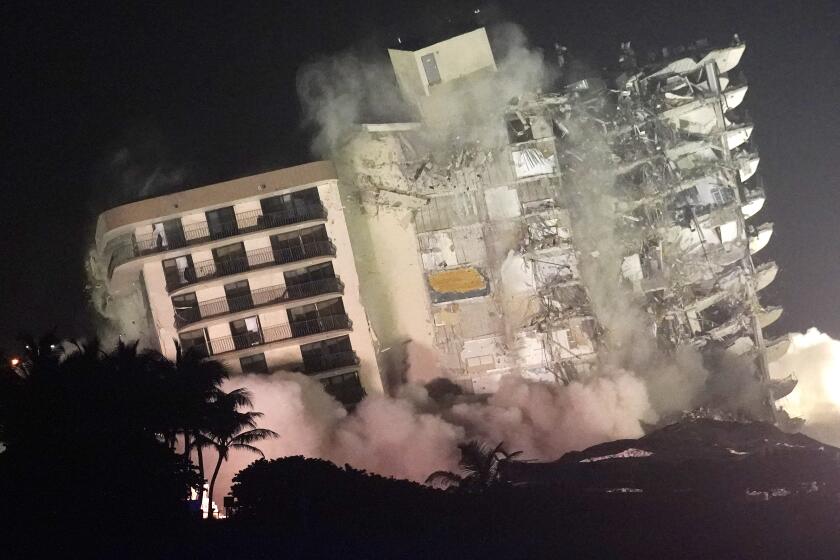Cuba evacuates 180,000 as Tropical Storm Elsa closes in

HAVANA — Cuba evacuated 180,000 people Sunday amid fears that Tropical Storm Elsa could unleash heavy flooding after battering several Caribbean islands, killing at least three people.
The Cuban government opened shelters and moved to protect sugarcane and cocoa crops ahead of the storm, which was offshore moving along Cuba’s southern coast late Sunday and expected to make landfall farther west by Monday afternoon. Most of those evacuated went to relatives’ homes, while some people sheltered at government facilities. Hundreds living in mountainous areas took refuge in natural caves prepared for emergencies.
The storm’s next target was Florida, where Gov. Ron DeSantis declared a state of emergency in 15 counties, including in Miami-Dade County, where a high-rise condominium building collapsed a week and a half ago.
Elsa’s center was about 270 miles southeast of Havana and moving northwest at 15 mph. Its maximum sustained winds had strengthened a bit to about 65 mph, the National Hurricane Center in Miami said.
The center said the storm was expected to gradually weaken while passing over central Cuba on Monday.
“After Elsa emerges over the Florida Straits and the southeastern Gulf of Mexico, some slight re-strengthening is possible,’’ it said.
Forecasters expect yet another busy Atlantic hurricane season this year, but they say it won’t be as crazy as 2020.
Rain fell intermittently in Cuba’s eastern provinces throughout Sunday as the storm passed by to the south.
“So far it’s a soft, serene rain. There are no downpours. The streets are not overflowing,” Yolanda Tabío, a 73-year-old retiree living in Santiago, told the Associated Press. “I thought it could be worse.”
Rafael Carmenate, a volunteer for the local Red Cross who lives facing the beach in Santa Cruz del Sur, told the AP by telephone: “We have a little water — showers. The sea has not intruded. It’s cloudy and gusty.”
The storm killed one person on St. Lucia, according to the Caribbean Disaster Emergency Management Agency. A 15-year-old boy and a 75-year-old woman died Saturday in separate events in the Dominican Republic after walls collapsed on them, according to a statement from the Emergency Operations Center.
Elsa was a Category 1 hurricane until Saturday morning, causing widespread damage on several eastern Caribbean islands Friday as the first hurricane of the Atlantic season. Among the hardest hit was Barbados, where more than 1,100 people reported damaged houses, including 62 homes that collapsed. The government promised to find and fund temporary housing to avoid clustering people in shelters amid the pandemic.
Downed trees also were reported in Haiti, which is especially vulnerable to floods and landslides because of widespread erosion and deforestation. Haiti’s Civil Protection Agency said Sunday that three people had been injured by downed trees.
Demolition crews set off explosives late Sunday to bring down the damaged remaining portion of a collapsed South Florida condo building, a key step to resuming the search for victims as rescuers possibly gain access to new areas of the rubble.
A tropical storm warning was in effect for western Cuba and for the Florida Keys from Craig Key westward to the Dry Tortugas. Cuba’s government posted a hurricane warning for Cienfuegos and Matanzas provinces.
Elsa is the earliest fifth-named storm on record and also broke the record as the tropic’s fastest-moving hurricane, clocking in at 31 mph Saturday morning, said Brian McNoldy, a hurricane researcher at the University of Miami.
Portions of Cuba were forecast to get rainfall of 5 to 10 inches through Monday, with isolated maximum amounts of 15 inches. Jamaica was expected to get 4 to 8 inches, with maximum totals of 15 inches.
More to Read
Sign up for Essential California
The most important California stories and recommendations in your inbox every morning.
You may occasionally receive promotional content from the Los Angeles Times.












